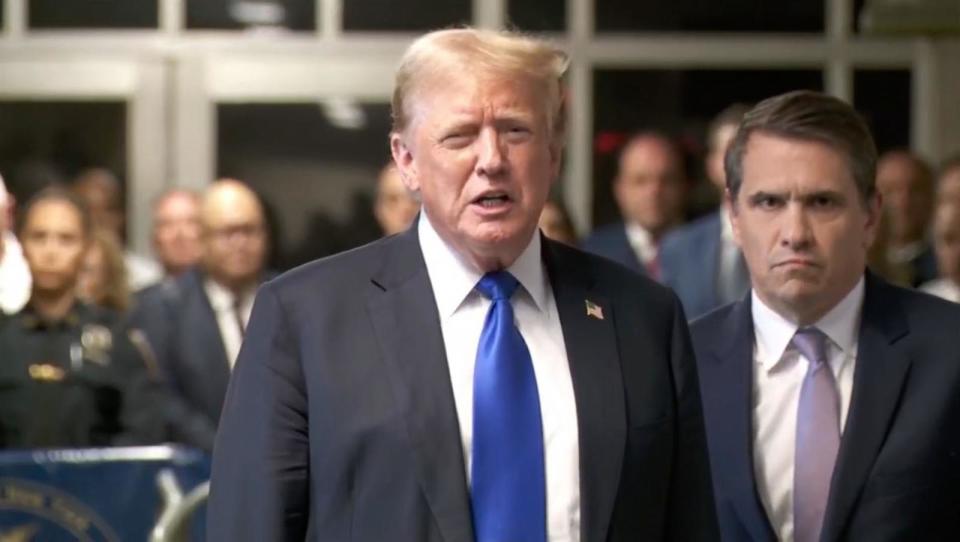Trump is now a convicted felon. Here's what that could mean for his rights
For the first time in United States history, a former -- and quite possibly future -- president is now officially a convicted felon.
The guilty verdict in Donald Trump's hush money trial has opened a huge can of worms regarding what this could mean for him legally. Like any other American found guilty of a crime, Trump is likely to face new restrictions and lose a number of rights due to his newfound felon status.
Here's what legal experts say we can expect to see happen.
MORE: Trump trial: Biden calls Trump's remarks 'dangerous'
Could Trump still run for president?
He most certainly could. As long as you're over 35, a natural-born citizen and a resident of the U.S. for at least 14 years, you're eligible to run for president.
It wouldn't be the first time there's been a convicted felon in the presidential race, in 1920, Socialist Party candidate Eugene V. Debs won 3.4% of the popular vote while in prison on sedition charges for speaking out against the World War I draft.
Could he still vote?
Yes, unless he's in prison.
Though Florida -- where Trump is registered to vote -- prohibits people convicted of felonies from voting until their sentence is complete, New York law will allow him to maintain his voting rights.
In New York, felons are only barred from voting if they are currently incarcerated, and voting rights are automatically restored upon their release from prison.

Florida law states that felons are ineligible to vote "only if the conviction would make the person ineligible to vote in the state where the person was convicted," thus clearing the way for Trump to cast his ballot in November -- as long as he's not behind bars at that point, in which case, he would be legally prohibited from voting.
MORE: Can Trump still be elected president after being convicted in hush money case?
Could Trump own a gun?
Probably not. Under both federal law and New York state law, people convicted of felonies cannot legally possess firearms.
But Trump -- who in 2012 told the Washington Times he had a concealed-carry permit and owned several guns -- could eventually get that ban reversed.
"He could seek to have that right restored, since his conviction was for a lower level non-violent felony," Cheryl Bader, a professor at Fordham Law, told ABC News.
Could he travel internationally?
Probably, but possibly not to some particular countries.
As part of sentencing, a judge may impose travel restrictions, but that's usually only done when there's concern that the person might flee. "I would be surprised if Judge Merchan will feel that travel restrictions are necessary as Trump is not a flight risk," Bader said.
However, there are a number of countries -- including Canada, China and the U.K. -- that refuse entry to foreign visitors who've been convicted of crimes. Even so, it's not such a black-and-white rule, and is often decided on a case-by-case basis depending on the nature of the crime.
"These laws could cause Trump problems depending on what happens with his sentence and whether a particular country bans people convicted of a comparable crime ... [but] governments of these countries likely have some discretion to waive the prohibition." Betsy Ginsberg, a professor at Cardozo Law, told ABC News.
Trump is now a convicted felon. Here's what that could mean for his rights originally appeared on abcnews.go.com

 Yahoo News
Yahoo News 
